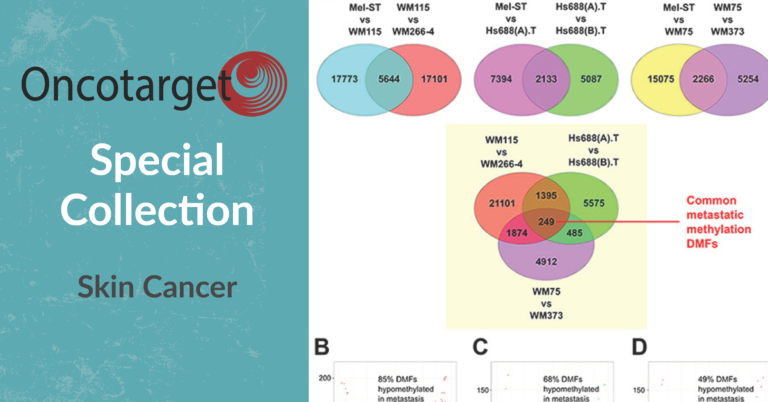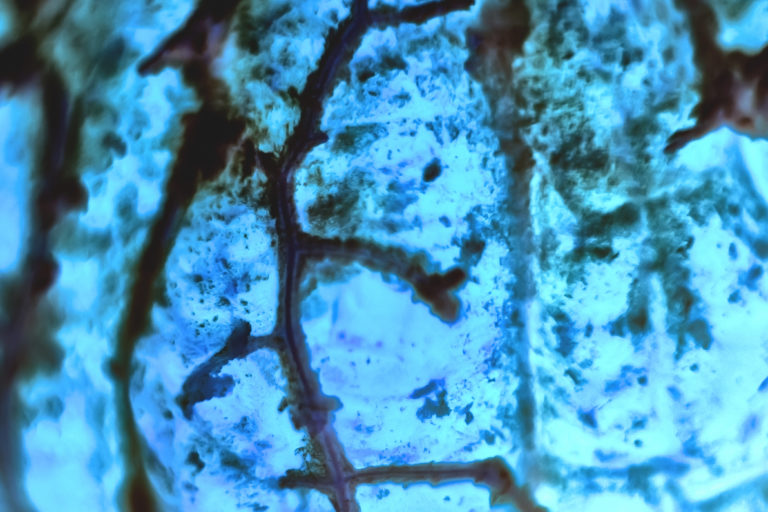Table of Contents: Oncotarget’s Volume 12, Issue #11
Oncotarget
May 25, 2021Oncotarget’s Volume 12, Issue #11
New Publications
Cover (Research Paper): CEA as a blood-based biomarker in anal cancer
Origin: Texas, California, Tennessee, United States
Institutions: The University of Texas – MD Anderson Cancer Center, Terasaki Foundation of Biomedical Sciences, Vanderbilt Ingram Cancer Center
Quote: “The clinical utility of a blood-based biomarker in squamous cell carcinoma of the anus (SCCA) is unknown. We analyzed carcinoembryonic antigen (CEA), a commonly employed assay for patients with colorectal adenocarcinoma, as a serum biomarker for patients with biopsy-proven SCCA.”
News: FGFR1, a novel biomarker for metastatic castration-resistant prostate cancer?
Origin: Florida, United States
Institution: The Scripps Research Institute
Quote: “Prostate cancer is the second most common cause of cancer-related death among men in the United States [1]. In a seminal paper eighty years ago, Huggins and Hodges demonstrated that prostate tumors and metastatic disease are sensitive to the presence or absence of androgenic hormones [2].”
Editorial Paper: Advances in innovative exosome-technology for real time monitoring of viable drugs in clinical translation, prognosis and treatment response
Origin: California, United States
Institution: Stanford University
Quote: “The advent of advanced exosome purification methods has made it possible to tap on the unexplored potential of these tiny particles in clinically-precise diagnosis and treatment of a myriad of diseases [6–8].”
Editorial Paper: Drug-development, dose-selection, rational combinations from bench-to-bedside: are there any lessons worth revisiting?
Origin: Michigan, United States
Institutions: University of Michigan
Quote: “The development of a new treatment modality, especially a novel cancer drug, is arduous work and takes years from conception to apparent success (or failure). The process for new drug approval is prolonged, taking 5–15 years with billions of dollars of investment.”
Research Paper: Occurence of RAS reversion in metastatic colorectal cancer patients treated with bevacizumab
Origin: Locarno, Bellinzona, Switzerland; Novara, Legnano, Italy
Institutions: Ente Ospedaliero Cantonale, University of Eastern Piedmont, Ospedale di Legnano
Quote: “A disappearance of RAS mutations in the plasma of about 50% of mCRCs (metastatic colorectal cancers) treated with bevacizumab-based chemotherapy has been reported. Our aim was to evaluate the same issue at tissue level.”
Research Paper: Caspase-11 and AIM2 inflammasome are involved in smoking-induced COPD and lung adenocarcinoma
Origin: Salerno, Naples, Italy; Munich, Germany; Patras, Greece
Institutions: University of Salerno, Ludwig-Maximilians University and Helmholtz Center, University of Patras, University of Naples
Quote: “To mimic COPD, we exposed mice to nose-only cigarette smoke and used human samples of lung adenocarcinoma patients according to the smoking and COPD status.”
Research Paper: A novel E2F1-regulated lncRNA, LAPAS1, is required for S phase progression and cell proliferation
Origin: Ramat Gan, Safed, Israel
Institutions: Bar-Ilan University
Quote: “Increasing evidence indicates that lncRNAs are key regulators of important biological processes including cell cycle progression [5], cell proliferation and apoptosis [6]. Specifically, some lncRNAs function in regulation of cell cycle progression via modulation of critical cell cycle players, such as the cyclins, CDKs, CDK inhibitors, pRB, and p53 [5, 7–9].”
Research Paper: Epigallocatechin-3-gallate modulates Tau Post-translational modifications and cytoskeletal network
Origin: Pune 411008, Ghaziabad 201002, India
Institutions: CSIR-National Chemical Laboratory, Academy of Scientific and Innovative Research
Quote: “Alzheimer’s disease is a type of dementia denoted by progressive neuronal death due to the accumulation of proteinaceous aggregates of Tau. Post-translational modifications like hyperphosphorylation, truncation, glycation, etc. play a pivotal role in Tau pathogenesis.”
Research Paper: Ex vivo analysis of DNA repair targeting in extreme rare cutaneous apocrine sweat gland carcinoma
Origin: Turku, Helsinki, Finland; Sheffield, United Kingdom; Patras, Greece; Stockholm, Sweden
Institutions: Misvik Biology Oy, University of Sheffield, University of Patras, Karolinska Institutet, Docrates Cancer Hospital
Quote: “Cutaneous apocrine carcinoma is an extreme rare malignancy derived from a sweat gland. Histologically sweat gland cancers resemble metastatic mammary apocrine carcinomas, but the genetic landscape remains poorly understood. Here, we report a rare metastatic case with a PALB2 aberration identified previously as a familial susceptibility gene for breast cancer in the Finnish population.”
Review Paper: Evaluation of liver kinase B1 downstream signaling expression in various breast cancers and relapse free survival after systemic chemotherapy treatment
Origin: Louisiana, North Carolina, United States
Institutions: Tulane University School of Medicine, LSUHSC School of Medicine, University of North Carolina
Quote: “LKB1-signaling has prominent roles in cancer development and metastasis. This report evaluates LKB1-signaling pathway gene expression associations with patient survival in overall breast cancer, specific subtypes, as well as pre- and post-chemotherapy.”
Case Report: Immunotherapy in Xeroderma Pigmentosum: a case of advanced cutaneous squamous cell carcinoma treated with cemiplimab and a literature review
Origin: Turin, Pavia, Italy
Institutions: University of Turin, National Center of Oncological Hadrontherapy
Quote: “Xeroderma Pigmentosum (XP) is a rare genetic disorder with a poor prognosis due to high photosensitivity in affected patients. Herein, we describe the first case of the use of cemiplimab in a patient with XP, a 19-year-old girl presented with locally advanced squamous cell carcinoma of the right periorbital and nasal region. This treatment has been undertaken after a cycle of proton beam radiotherapy.”
Click here to read Oncotarget’s Volume 12, Issue #11.
—
Oncotarget is a unique platform designed to house scientific studies in a journal format that is available for anyone to read—without a paywall making access more difficult. This means information that has the potential to benefit our societies from the inside out can be shared with friends, neighbors, colleagues, and other researchers, far and wide.
For media inquiries, please contact media@impactjournals.com.


